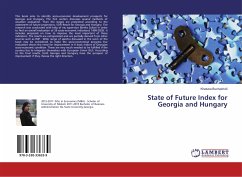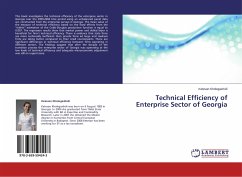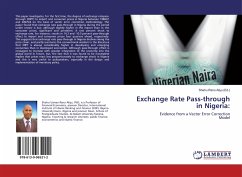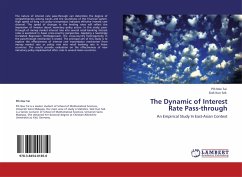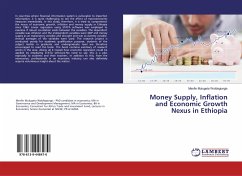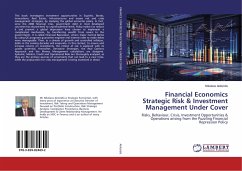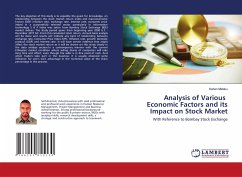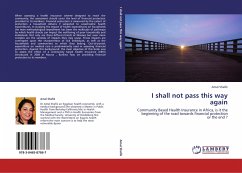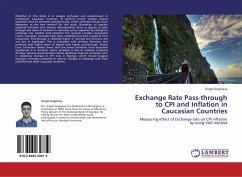
Exchange Rate Pass-through to CPI and Inflation in Caucasian Countries
Measuring effect of Exchange rate on CPI inflation by using VAR method
Versandkostenfrei!
Versandfertig in 6-10 Tagen
32,99 €
inkl. MwSt.

PAYBACK Punkte
16 °P sammeln!
Objective of this study is to analyze exchange rate pass-through in transitional, Caucasian countries. To perform proper analysis several equations must be estimated simultaneously, which nominates Vector Auto Regression as the best method for this study. Illustration of impulse response functions and variance decomposition show us degree of pass-through and share of variation in consumer prices explained by changes in exchange rate. Despite data limitation this research provides meaningful results. Caucasian countries have many similarities but each reveals its own uniqueness. Pass-through is...
Objective of this study is to analyze exchange rate pass-through in transitional, Caucasian countries. To perform proper analysis several equations must be estimated simultaneously, which nominates Vector Auto Regression as the best method for this study. Illustration of impulse response functions and variance decomposition show us degree of pass-through and share of variation in consumer prices explained by changes in exchange rate. Despite data limitation this research provides meaningful results. Caucasian countries have many similarities but each reveals its own uniqueness. Pass-through is relatively higher in Georgia and Armenia and very low in Azerbaijan. This is consistent with previous literature that countries with higher share of import have higher pass-through. Vector Error Correction model shows that the lowest deviation from long-term equilibrium is in Armenia, which probably is due to inflation targeting strategy. Variance decomposition shows significant share of exchange rates in explaining changes in CPI only in Georgia, which should suggest Georgian monetary authority to observe changes in exchange rate more carefully than other Caucasian countries.



